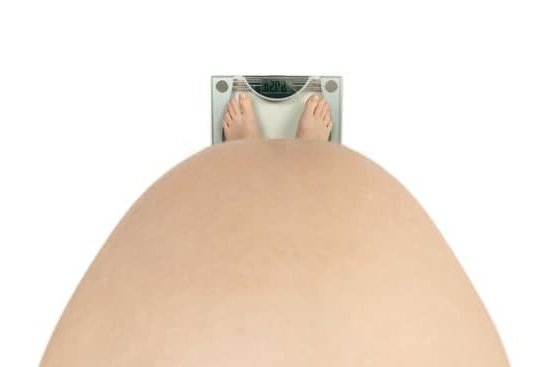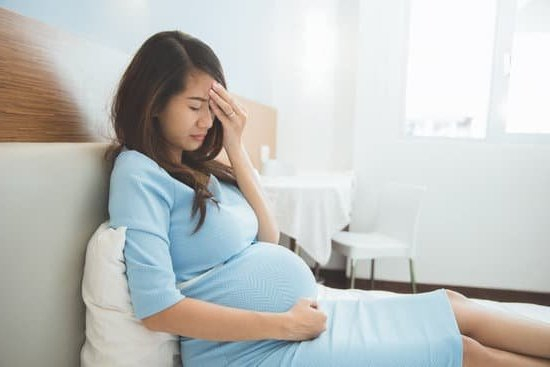Are you experiencing hip pain during pregnancy? Many expectant mothers find themselves struggling with discomfort and achiness in their hip area as their pregnancy progresses. Hip pain during pregnancy is a common issue that can affect your daily activities and overall wellbeing. Understanding the causes, physical changes in the body, and effective tips for alleviating hip pain can help you navigate through this challenging time.
During pregnancy, the body undergoes various physical changes to accommodate the growing baby, leading to increased pressure on the hips and pelvis. These changes can result in discomfort and restricted mobility, making it important to take proactive measures to alleviate hip pain.
Causes of hip pain during pregnancy can range from hormonal shifts to weight gain and altered posture, impacting expectant mothers differently. By gaining insight into these factors and implementing targeted strategies for relief, you can often manage or minimize hip pain for a more comfortable pregnancy experience. Additionally, exercising and adopting proper sleeping positions can offer further support in relieving hip pain during this crucial stage of life.
Causes of Hip Pain During Pregnancy
During pregnancy, many women experience hip pain, which can be caused by a variety of factors. The additional weight and pressure from the growing uterus can lead to discomfort and pain in the hips. In addition, hormonal changes during pregnancy can affect the ligaments that support the pelvis, leading to instability and potential hip pain. This section will discuss some of the common causes of hip pain during pregnancy and provide insights into why pregnant women may experience this discomfort.
One of the main reasons for hip pain during pregnancy is the relaxing of the ligaments in the pelvic area. This natural process allows the pelvis to expand in preparation for childbirth, but it can also lead to increased pressure on the hip joints, resulting in pain and discomfort.
The additional weight gain during pregnancy also contributes to this pressure, especially as the baby grows larger and increases strain on the hips. As a result, women may find themselves experiencing hip pain more frequently as their pregnancies progress.
Another factor that can cause hip pain during pregnancy is the change in posture due to a shifting center of gravity. As the uterus expands, it alters a woman’s balance and places strain on different muscles and joints, including those in the hips.
This change in posture can lead to muscle imbalances and increased stress on the hip joints, resulting in pain or discomfort. It’s important for expectant mothers to be mindful of their posture and make adjustments as needed to alleviate this type of hip pain during pregnancy.
Women who are already prone to musculoskeletal issues may also experience an exacerbation of pre-existing conditions during pregnancy, which can contribute to hip pain. For example, individuals with conditions such as scoliosis or arthritis may find that their symptoms worsen as their bodies adapt to pregnancy-related changes. It’s crucial for pregnant women with these conditions to work closely with healthcare professionals to manage their symptoms effectively while ensuring a healthy pregnancy.
| Cause | Description |
|---|---|
| Relaxation of Ligaments | Natural process causing pelvic expansion; increases pressure on hips |
| Change in Posture | Shift in center of gravity alters balance; leads to muscle imbalances |
| Pre-existing Conditions | Conditions such as scoliosis or arthritis may worsen during pregnancy |
Physical Changes in the Body During Pregnancy
During pregnancy, the body goes through a variety of physical changes, and hip pain can be a common discomfort for many women. As the body prepares for childbirth, the hormone relaxin is released, which loosens the ligaments and joints in the pelvic area to make delivery easier. This can also lead to instability in the hips and contribute to hip pain during pregnancy.
The growing uterus also puts pressure on the hips and pelvic area, causing discomfort and pain. As a result, pregnant women may experience difficulty walking, standing for long periods, or even sitting comfortably. The weight gain during pregnancy can also put added stress on the hips, exacerbating any existing discomfort.
It’s important for pregnant women to understand these physical changes in their bodies and how they may contribute to hip pain. Recognizing these changes can help expecting mothers take proactive steps to manage and alleviate their discomfort, leading to a more comfortable pregnancy experience overall.
| Common Physical Changes During Pregnancy | Impact on Hip Pain |
|---|---|
| Hormonal changes and loosening of ligaments | Increased hip joint mobility leading to potential pain |
| Growing uterus putting pressure on hips | Discomfort and pain due to added weight and pressure |
| Weight gain during pregnancy | Additional stress on hips exacerbating any existing pain |
Tips for Alleviating Hip Pain
During pregnancy, many women experience hip pain as a result of the physical changes their bodies undergo. This discomfort can sometimes be debilitating and affect daily activities. Fortunately, there are several ways to alleviate hip pain during pregnancy and make the experience more manageable.
One tip for alleviating hip pain during pregnancy is to practice good posture. Standing and sitting with proper alignment can help decrease the strain on the hips and reduce discomfort. Additionally, using a support pillow when sitting or lying down can provide relief by promoting proper spinal alignment and taking pressure off the hips.
Another effective way to alleviate hip pain during pregnancy is to apply heat or cold therapy. A warm bath, heating pad, or hot water bottle can help relax tense muscles and soothe aching hips. On the other hand, applying an ice pack or cold compress can reduce inflammation and provide relief from hip pain.
In addition to these tips, wearing supportive footwear and using maternity support belts can also help alleviate hip pain during pregnancy. Shoes with good arch support and cushioning can reduce pressure on the hips, while a maternity support belt can provide added abdominal and back support, which in turn may alleviate some of the strain on the hips”.
Exercises and Stretches to Relieve Hip Pain
During pregnancy, it is common to experience hip pain due to the physical changes in your body. Fortunately, there are exercises and stretches that can help alleviate this discomfort. Here are some effective exercises and stretches to relieve hip pain during pregnancy:
- Pelvic Tilts: Pelvic tilts help strengthen the abdominal muscles and provide relief to the lower back and hips. To do this exercise, lie on your back with your knees bent and feet flat on the floor. Gently tilt your pelvis towards your belly button, hold for a few seconds, then release.
- Leg Swings: Leg swings can help improve hip mobility and reduce stiffness. Stand next to a sturdy support like a chair or wall for balance. Swing one leg forward and backward, then side to side in a controlled manner.
- Butterfly Stretch: The butterfly stretch targets the inner thighs and hips. Sit on the floor with the soles of your feet together and gently press your knees down towards the floor while leaning forward.
Incorporating these exercises and stretches into your daily routine can provide relief from hip pain during pregnancy. However, it is important to consult with your healthcare provider before starting any new exercise regimen, especially during pregnancy.
It is recommended to perform these exercises and stretches in a gentle and controlled manner to avoid overexertion or injury. Additionally, practicing good posture throughout the day can also contribute to reducing hip pain during pregnancy. By incorporating these exercises and stretches along with other tips for alleviating hip pain, you can experience a more comfortable pregnancy journey despite experiencing discomfort in this area.
Comfortable Sleeping Positions for Hip Pain Relief
During pregnancy, many women experience discomfort and pain in their hips, especially when trying to sleep. Finding a comfortable sleeping position can make a significant difference in alleviating hip pain and improving the quality of sleep. It is essential for pregnant women to prioritize their comfort and well-being, especially when experiencing hip pain during pregnancy.
Side-Lying Position
One of the most recommended sleeping positions for pregnant women experiencing hip pain is the side-lying position. This position helps relieve pressure on the hips and lower back, making it more comfortable to rest. Placing a pillow between the knees can also help align the hips and reduce strain on the muscles.
Use of Pregnancy Pillows
Pregnancy pillows are specially designed to support the changing body shape of pregnant women. These full-body pillows provide support for the hips, back, and belly, making it easier to find a comfortable sleeping position. Using a pregnancy pillow can significantly reduce hip pain during pregnancy and promote better sleep quality.
Elevating Hips With Pillows
Elevating the hips with pillows or cushions can also help alleviate hip pain during pregnancy. Placing a pillow under the hips while lying on one’s side can provide extra support and reduce discomfort. Experimenting with different combinations of pillows to find the most supportive and comfortable position is key to finding relief from hip pain during pregnancy.
When to Seek Professional Help for Hip Pain
When it comes to experiencing hip pain during pregnancy, it is important for expectant mothers to be aware of when it is necessary to seek professional help. While some level of discomfort is normal during pregnancy, certain symptoms may indicate a more serious issue that requires medical attention.
Signs to Watch Out For
If you are experiencing severe and persistent hip pain during pregnancy, it is important to pay attention to any accompanying symptoms. Signs such as swelling, redness, warmth in the hip area, as well as difficulty walking or bearing weight on the affected side should not be ignored. Additionally, if the pain is interfering with your daily activities or causing significant disruption to your sleep, it may be time to consult a healthcare professional.
Consulting Your Healthcare Provider
It is advisable to speak with your healthcare provider if you have concerns about hip pain during pregnancy. They can help determine the underlying cause of the discomfort and recommend appropriate treatment options. Your provider may conduct a physical examination, review your medical history, and possibly order diagnostic tests such as an ultrasound or MRI to further evaluate the issue.
Seeking Immediate Medical Attention
In some cases, hip pain during pregnancy may be a sign of more serious conditions such as preterm labor or preeclampsia. If you experience sudden and intense hip pain accompanied by symptoms like vaginal bleeding, contractions, high blood pressure, severe headaches, or visual disturbances, seek immediate medical attention. These could be indications of complications that require prompt intervention for the health and safety of both you and your baby.
Preventing Hip Pain During Pregnancy
During pregnancy, many women experience hip pain due to the physical changes that occur in their bodies. It is crucial to understand how to prevent hip pain during pregnancy, as it can greatly affect a woman’s comfort and mobility. By following certain dos and avoiding specific don’ts, women can minimize the likelihood of experiencing hip pain and enjoy a more comfortable pregnancy experience.
One important “do” for preventing hip pain during pregnancy is to maintain proper posture. This means standing up straight, keeping the shoulders back, and avoiding slouching. Good posture helps distribute the body’s weight evenly and reduces pressure on the hips, ultimately minimizing discomfort. Additionally, engaging in regular low-impact exercise such as swimming or walking can help strengthen the muscles supporting the hips, providing better stability and reducing the risk of experiencing hip pain.
On the other hand, a major “don’t” for preventing hip pain during pregnancy is avoiding high heels. Wearing shoes with a higher heel can throw off the body’s alignment and put additional strain on the hips, exacerbating any existing discomfort.
It is also advisable to avoid crossing your legs while sitting as this can add pressure to the hips and contribute to discomfort. Lastly, it’s important not to overexert yourself – listen to your body and take breaks when needed.
Conclusion
In conclusion, hip pain during pregnancy is a common discomfort that many women experience due to the physical changes their bodies undergo. Understanding the causes of hip pain, such as increased pressure on the joints and muscles, can help expectant mothers find ways to alleviate and prevent this discomfort. While it may not be entirely avoidable, there are various tips, exercises, and stretches that can provide relief and make the pregnancy experience more comfortable.
It is important for pregnant women to listen to their bodies and seek professional help if the hip pain becomes severe or persistent. Consulting with a healthcare provider can ensure that any underlying issues causing the hip pain are addressed properly. It’s essential for expectant mothers to prioritize their comfort and well-being during this unique time in their lives.
By following the dos and don’ts of preventing hip pain during pregnancy, women can take proactive steps to minimize discomfort. It’s crucial to maintain good posture, engage in gentle exercises, practice proper body mechanics, and avoid activities that exacerbate hip pain. Ultimately, by being mindful of their bodies and taking necessary precautions, expectant mothers can cope with hip pain effectively for a more comfortable pregnancy experience.
Frequently Asked Questions
When Should I Be Concerned About Hip Pain During Pregnancy?
Hip pain during pregnancy is common, but if it becomes severe or persistent, it may be a cause for concern. If the pain is affecting your daily activities or is accompanied by other symptoms like fever or chills, it’s best to consult your healthcare provider.
What Helps Sore Hips During Pregnancy?
There are several ways to alleviate sore hips during pregnancy. Using pillows to support your hips and legs while sleeping can help relieve pressure. Physical therapy exercises designed for pregnant women can also improve hip flexibility and strength. Additionally, applying heat or cold packs to the affected area may provide temporary relief.
Can Side Sleeping Cause Hip Pain During Pregnancy?
Side sleeping is often recommended during pregnancy as it improves circulation to both mother and baby. However, if not done properly, side sleeping can lead to hip pain due to the pressure placed on the hips and pelvis. Using a pregnancy pillow between the knees can help maintain proper alignment and reduce the risk of hip pain while side sleeping.

Welcome to my fertility blog. This is a space where I will be sharing my experiences as I navigate through the world of fertility treatments, as well as provide information and resources about fertility and pregnancy.





